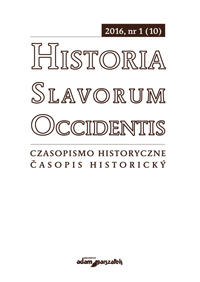Gustav Stresemann i DVP wobec idei wielkiej koalicji (1920–1929)
Gustav Stresemann and DVP on the idea of great coalition (1920–1929)
Author(s): Piotr KubiakContributor(s): Piotr Kubiak (Translator)
Subject(s): History, Political history, Recent History (1900 till today), Interwar Period (1920 - 1939)
Published by: Wydawnictwo Adam Marszałek
Keywords: Weimar Republic; grand coalition; German People’s Party (DVP);Gustav Stresemann;
Summary/Abstract: The article presents the background of the arguments within the German People’s Party (DVP) concerning the idea of great coalition in the years 1920–1929. At the time, the concept of great coalition referred to the idea of a broad alliance of political forces ranging from social democrats on the left to national liberals from DVP. The chairman of DVP, Gustav Stresemann, was a proponent of such an alliance. Twice, i.e., in 1923 and 1928, he pushed towards the formation of a great coalition comprising SPD, DDP, Centre Party (and BVP in the period 1928–1930), while facing opposition from the right wing of his party. The crux of the discontent on the part of the right-wing faction was the cooperation with social democrats. In 1923, the right wing of DVP caused a downfall of the great coalition and resulted in the fracturing of the party. In March 1930, only a few months after Stresemann’s death (2 October 1929), the coalition of his making disintegrated. This proved to be the last parliamentary government of the Weimar Republic.
Journal: Historia Slavorum Occidentis
- Issue Year: 2016
- Issue No: 1
- Page Range: 188-216
- Page Count: 29
- Language: Polish

